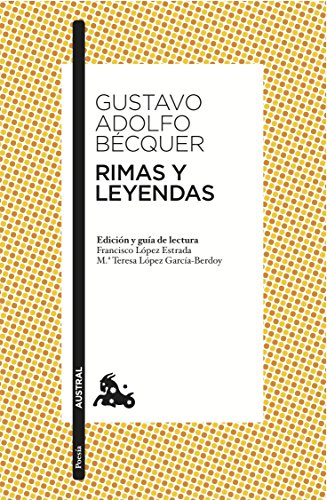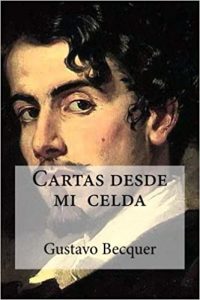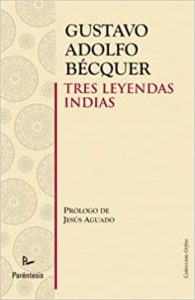Strictly formal, romanticism as a narrative intention is a stubborn search for the lyric of all emotion, whether in poetry or prose. AND Gustavo Adolfo Becquer It is the highest national exponent of that disturbing, exciting, disturbing or melancholic intention, depending on the moment.
Because it never hurts to remember that romanticism is the existentialism of sensitivity. Imagination and fantasy at the service of romanticism are excuses with which to peer into the "cold of living", as the writer would say Carlos Castan.
In my childhood I grew up with the legends of Becquer, many of them spread along the slopes of the Moncayo, there where the author spent his convalescence from the Monastery of Veruela. So it certainly took time to bring this great reference to this space, a kind of Poe Iberian with similar influences on love and death, under the uneven influence of these sunniest lands and more capable of the chiaroscuro of souls.
Searching for the best books by Becquer means, on many occasions, inquiring about the different compilations that have been regrouping what has been written by this author. However, all these books are a brilliant recognition of the fleeting narrative of the quintessential Spanish romantic.
Top 3 recommended works of Gustavo Adolfo Becquer
Rhymes and legends
In this fascinating communion of poetry and prose one finds a literary impressionism that anticipated the later pictorial trend. Because the reality of what is narrated is filled with color, with spirited brushstrokes that invite you to glimpse the landscapes of the author's unleashed soul. Taking as reference episodes from History or real locations sifted by Becquer's vision, a magic is discovered that evokes the esoteric as an overcoming of the previous rationalism that constrained the creator.
Rhymes and legends, legends and rhymes make up a cosmos that invites us to contemplate traditional spaces under the shocking prism of drives and passions, on the one hand, and of old beliefs converted into new myths narrated by Becquer with disturbing intentions (or what is the same , with a liberating will for the author's own soul).
An agile reading book that maintains that romantic evocation from which more gothic and sinister later currents branched out that, although they delve deeper into dark spaces as a collusion with fatality and death, in my opinion they fail to maintain that chill of the insinuation above the manifest.
I don't know, it's strange, maybe it's that the authentic and original always maintains the most direct link with the reader through the ambiguous impressions of stories that lead to the chill of the detail that travels equidistant, like a tightrope walker, between love and death .
From my cell
There, in Veruela, under the influence of that Moncayo in whom I myself spent many of the happy moments of childhood and youth, Becquer wrote this kind of manifesto about his narrative will.
A series of letters in which the conflict between the healing intention of his trip to Veruela and the Moncayo is seen, with the fear for his own life, and the overflowing vitality that, in the case of Becquer, is an awakening of his influence more powerful literary genre capable of transforming the epistolary genre into a story far above its reality, where subjective impressions make up a symbolic atmosphere that ends up building an unmistakable Becquerian world, unmistakable testimony for many other later writers.
Three Indian legends
A very special book that offers an interesting perspective on the creative power of Becquer. Today any of us can thoroughly document ourselves in all aspects about any place in the world.
Becquer, however, never traveled to learn up close the reality of the locations and legends that he set out to narrate in these three legends. But the truth is that the references taken matter little when Becquer as narrator always subjects reality to his transformative intention.
From the stereotypes of his time that could be told about the other side of the world, adding the imprint of a creative synthesis full of idealizations, images transposed from one world to the other and almost theatrical recreations around characters still considered to be inhabitants of a distant space, given over to disparate beliefs and customs that clashed with those of their colonizers, in whose conflict Becquer also gave rise to criticism.



